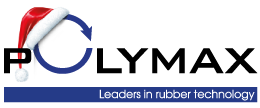This article will explain the main differences between Nitrile vs Viton®. Two of the most commonly approved elastomers, Nitrile (popularly referred to as NBR or Buna-N) and Viton® (Fluorocarbon rubber). Both materials are a great choice for general industrial use, they offer excellent compression set resistance and have a versatile set of properties list of applications and properties.
 Nitrile vs Viton®
Nitrile vs Viton®However, both these seals have different properties, types of application and characteristics. When considering the use of Nitrile vs Viton® here are some points to consider:
Nitrile Rubber
- Temperature: Nitrile is effective within a temperature range of -30°C to 100°C.
- General Suitability: Used for general purpose applications requiring resistance to aliphatic hydrocarbons, petroleum oils, water and hydraulic fluids.
- Environmental Properties: Nitrile vs Viton® is not resistant to degradation from weather and ozone exposure. Designed to resist most oils and lubricants, more importantly petroleum based lubricants, these seals have other benefits, such as superior abrasion and tear resistance, making them suitable for heavy duty industrial applications.
- Applications: A cost effective product, that works well with constrained temperatures and chemical resistance.
Viton® Rubber
- Temperature: Viton® seals can withstand temperatures up between -20°C to 210°C. Viton® seals are prone to failure below -15°C in dynamic applications, as they become inflexible and hard.
- General Suitability: Viton® is best suited for diverse sealing jobs that require high temperature and chemical resistance. Applications involving contact with petroleum oils, acids, silicone fluids and gases, halogenated hydrocarbons (trichloroethylene and carbon tetrachloride), aromatic hydrocarbons usually have seals and o rings made of Viton®.
- Environmental Properties: Viton® O-rings and seals have a wide range of chemical resistance (involving mineral acids, fuels, and oils) and this material is also highly resistant to oxidation, UV exposure, fungus, weather, ozone, and mould. This makes Viton® far superior to Nitrile in these regards. They are also designed to resist most oils and lubricants, more importantly petroleum-based lubricants.
- Applications: Viton® functions well in different automotive, chemical and appliance-processing industries.
- Cost: As an approximate guide, Viton® compound is ten to fifteen times more expensive than NBR. However, we stock both NBR and Viton O-rings and seals AS/BS, metric, French, German and other metric series at Polymax.
View our extensive Viton® and Nitrile range
As Viton® properties are quite different from nitrile rubber properties. It is crucial to consider the pros and cons of both materials, specifically in the context of their application. You can also consult our chemical compatibility guides or call Polymax on 01420 472000 for more information.
*Viton® is a registered trade mark of Du Pont Dow Elastomers
